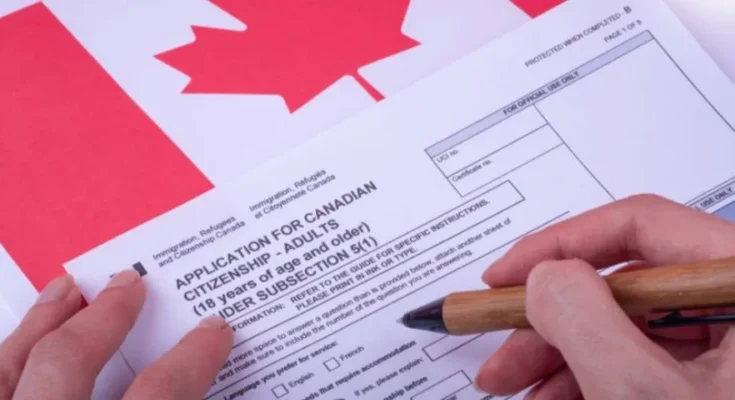Canada is known for its welcoming culture, high quality of life, and strong values of equality and diversity. Becoming a Canadian citizen is a significant milestone that grants you various rights and privileges, such as voting, holding a Canadian passport, and enjoying full access to the country’s benefits and opportunities. However, the process is not instantaneous. It requires meeting specific requirements, completing several steps, and fulfilling legal obligations.
If you’re planning to apply for Canadian citizenship, this guide will break down everything you need to know, from eligibility requirements to the application process and beyond.
Eligibility Criteria for Canadian Citizenship
Permanent Resident Status
The first step in applying for Canadian citizenship is ensuring you have permanent resident (PR) status. This means you’ve been granted the right to live in Canada indefinitely under immigration programs such as Express Entry, family sponsorship, or refugee programs.
To qualify, you must hold a valid PR card and not be under any removal orders. Additionally, any unresolved legal issues, such as criminal charges, can affect your PR status and eligibility for citizenship.
Physical Presence in Canada
One of the critical requirements for citizenship is physical presence. You must have been physically present in Canada for at least 1,095 days (three years) out of the last five years before applying. Time spent as a temporary resident or protected person may also count partially toward this requirement.
Certain exceptions apply for individuals working outside Canada for specific employers, such as the government or armed forces. Keeping a detailed record of your travels and using tools like the physical presence calculator from the IRCC website can help you determine your eligibility.
Filing Taxes
Filing income taxes is mandatory for Canadian citizenship eligibility. Applicants must have filed taxes for at least three years within the five years before submitting their application. Tax records are checked to confirm that you’ve met your financial obligations in Canada, including paying income tax on global income if you’re a resident.
Language Proficiency
Applicants between the ages of 18 and 54 must demonstrate proficiency in either English or French, Canada’s two official languages. Language skills are assessed to ensure you can communicate effectively and integrate into Canadian society.
Accepted benchmarks include CLB 4 (Canadian Language Benchmark) or higher in speaking and listening. Proof of language ability may include results from an approved test, such as CELPIP or IELTS, or evidence of education in English or French.
Citizenship Test and Interview
Understanding the Test Format
The Canadian citizenship test evaluates your knowledge of Canada’s history, geography, political system, and values. It consists of 20 multiple-choice and true/false questions, and you must score at least 15 correct answers to pass. The test also assesses your understanding of Canadian rights and responsibilities.
How to Prepare for the Test
Preparation is key to passing the citizenship test. Resources like the official IRCC study guide, “Discover Canada,” are invaluable. Practice tests available online can also familiarize you with the question format. Consider joining study groups or attending preparation classes to boost your confidence.
The Citizenship Interview
The interview is usually conducted to verify your application details, assess your language skills, and confirm your understanding of Canada’s values. During the interview, you may be asked about your application, background, and knowledge of Canada. Answer honestly and confidently to make a positive impression.
Application Process for Canadian Citizenship
Gathering Necessary Documents
To apply for citizenship, you’ll need essential documents, including:
- A valid PR card
- Proof of language proficiency
- Travel history and physical presence calculation
- Tax return documents
If your documents are in a language other than English or French, you must have them translated and certified.
Completing the Application Form
The application form requires detailed information about your residency, family, and personal history. Double-check for accuracy and completeness, as even minor errors can delay your application.
Paying the Application Fees
The current fee for adult applications is CAD 630, while minors pay CAD 100. Fees cover processing and the citizenship certificate. Ensure you retain proof of payment when submitting your application.
Submitting the Application
You can submit your application online or by mail, depending on your preference. Online submissions often result in faster processing times. After submission, you’ll receive an acknowledgment and can track the status of your application online.
Citizenship Ceremony
Oath of Citizenship
The final and most celebratory step in the citizenship process is the citizenship ceremony. During this event, candidates take the Oath of Citizenship, pledging loyalty to Canada and committing to uphold its laws and values. This formal declaration is mandatory to become a Canadian citizen.
The ceremony is conducted in person or online, depending on circumstances. Before attending, you’ll receive an invitation with the date, time, and venue details. Ensure you arrive on time, dressed appropriately, and ready to embrace this milestone moment.
Receiving the Certificate of Canadian Citizenship
At the end of the ceremony, you’ll receive your Certificate of Canadian Citizenship—an official document that confirms your status as a Canadian citizen. This certificate is not a travel document, so you’ll need to apply for a Canadian passport for international travel.
Keep your citizenship certificate in a safe place, as you may need it to prove your citizenship for various purposes, such as applying for government services or benefits.
Challenges in the Citizenship Process
Delays and Processing Times
While the citizenship process is straightforward, applicants often encounter delays. The average processing time for a citizenship application is around 24 months, though it can vary depending on factors like application volume or incomplete submissions.
Delays can also arise due to background checks, additional document requests, or issues with physical presence calculations. To avoid unnecessary setbacks, ensure all forms and documents are accurate and complete before submission.
Application Denials and Appeals
In some cases, applications are denied due to reasons like incomplete documentation, failure to meet physical presence requirements, or criminal history. If your application is refused, you’ll receive a detailed explanation.
Applicants can appeal a decision through the Federal Court of Canada or reapply if they correct the issues highlighted in the refusal. Consulting with an immigration lawyer or consultant can increase your chances of success during this process.
Benefits of Becoming a Canadian Citizen
Rights and Freedoms
Canadian citizens enjoy a wide range of rights, including the right to vote in federal, provincial, and municipal elections. Citizenship also allows you to run for public office, granting you a voice in shaping Canada’s future.
Additionally, Canadian citizens benefit from the Canadian Charter of Rights and Freedoms, which guarantees fundamental rights such as freedom of expression, religion, and equality under the law.
Global Mobility
One of the most significant advantages of Canadian citizenship is the Canadian passport. With it, you can travel to over 185 countries visa-free or with visa-on-arrival privileges, making it one of the most powerful passports in the world.
In emergencies, Canadian citizens can access consular assistance from Canadian embassies or consulates abroad, ensuring safety and support wherever you are.
Permanent and Equal Rights
Unlike permanent residents, Canadian citizens cannot lose their status due to prolonged stays outside the country. Citizenship provides lifetime security and access to all government benefits, education, and healthcare without restrictions.
Tips for a Successful Application
Staying Organized
The citizenship process involves multiple steps, and keeping track of your documents, deadlines, and progress is essential. Create a checklist to ensure you have all required documents, such as travel history, proof of language proficiency, and tax returns.
Stay updated on any changes to the citizenship process by visiting the IRCC (Immigration, Refugees and Citizenship Canada) website regularly.
Seeking Professional Help
Navigating the citizenship application can be challenging, especially if you have unique circumstances. Hiring a certified immigration consultant or lawyer can provide valuable guidance and help you avoid mistakes.
These professionals can also assist with appeals or cases involving complex issues like criminal records or legal disputes, ensuring your application stands the best chance of approval.
Conclusion
Becoming a Canadian citizen is a monumental achievement that comes with countless privileges and opportunities. While the process requires dedication, organization, and attention to detail, the rewards of citizenship far outweigh the challenges. By meeting the eligibility criteria, preparing thoroughly, and submitting a complete application, you can join the ranks of proud Canadians who call this beautiful country home.



